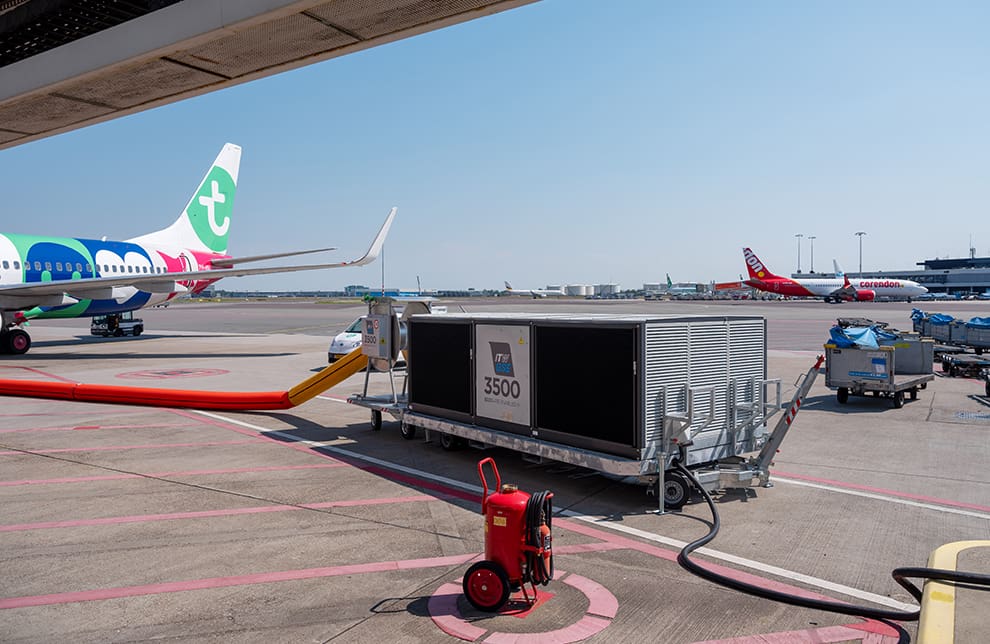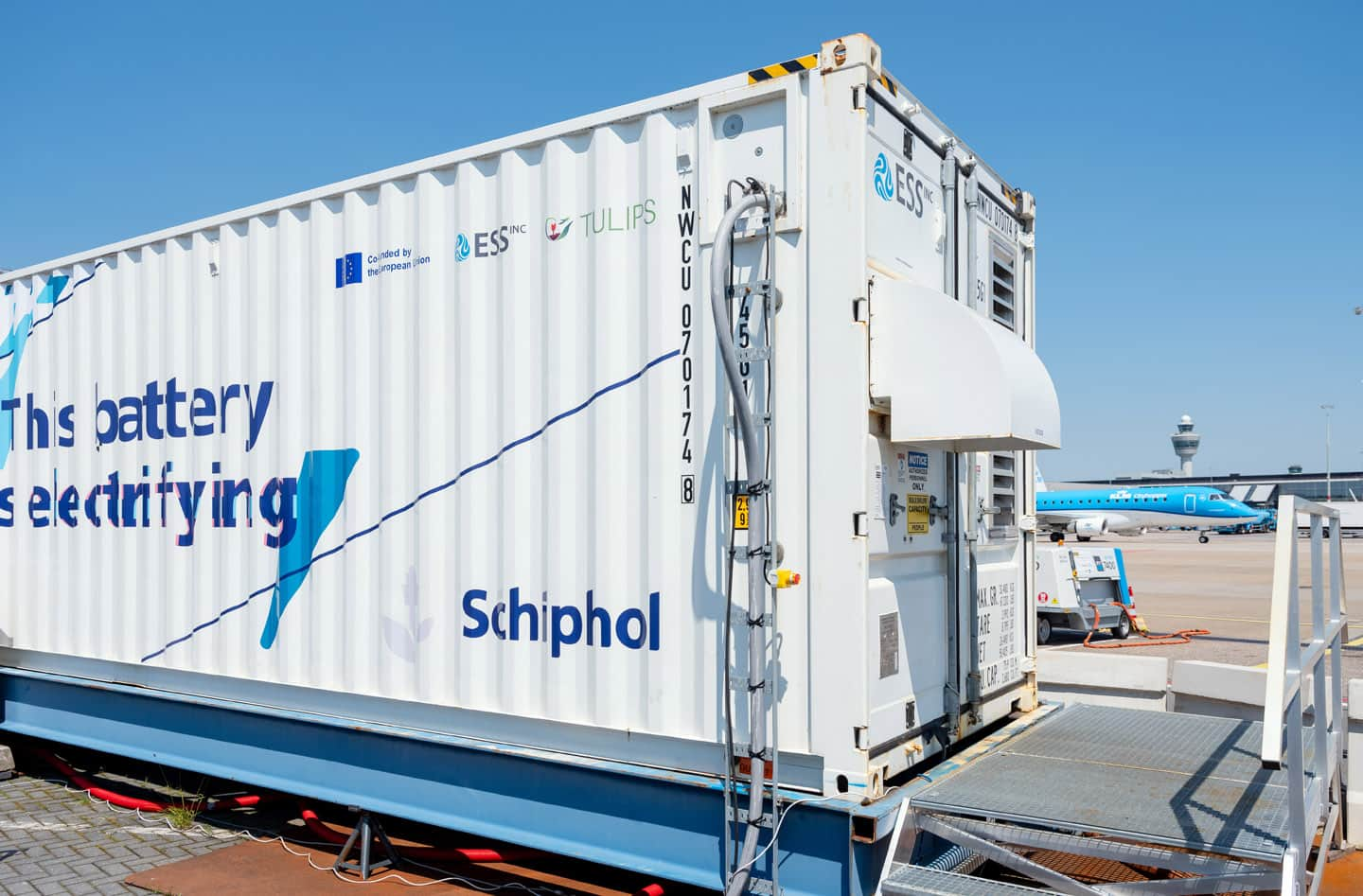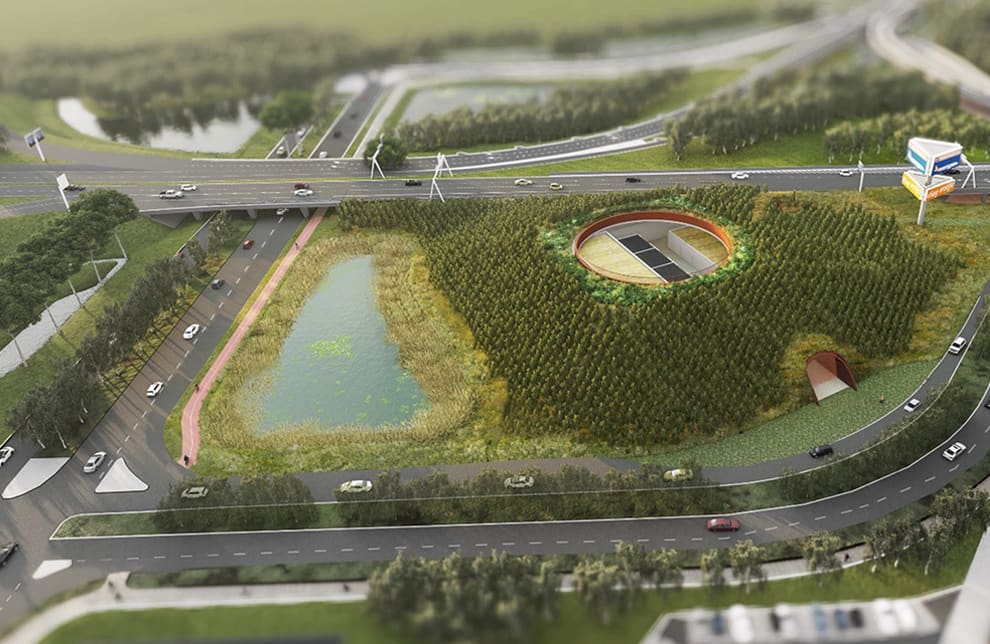Cleaner fresh air
You may have already noticed them when at the gate at Schiphol, waiting to board: two thick red cables connecting a caravan-sized piece of equipment to your plane. What do they do? They provide fresh air on board in a cleaner way.

Much-needed fresh air in parked planes
Fresh air in a stationary plane is important, otherwise it would quickly get hot and stuffy on board. Not a great start to your journey. The system for a pleasant indoor climate has traditionally been kept running by the auxiliary motor in the aircraft’s tail. Sounds convenient, but there is a major disadvantage: the auxiliary engine runs on kerosene. This causes extra emissions and noise around stationary aircraft. Not so pleasant for the people who work in the area.
Fresh air on board without using auxiliary engine
The solution for this is the Preconditioned Air Unit (PCA). It also supplies fresh air, but runs on electricity. This means that the kerosene-powered auxiliary engine can remain switched off, which leads to cleaner air on the apron and less noise. PCAs are placed close to the plane and two thick red cables connect it to the belly of the aircraft. At Schiphol we recently expanded the number of PCAs and now have no fewer than 25 of them. These are used by wide-body planes. All wide-body aircraft parked at a gate at Schiphol now get their fresh air from a PCA.
PCAs for narrow-body planes soon
Will there also be PCAs for smaller devices? Of course. There are even a few at Schiphol already. And 23 more will be added before the end of next year. Once they have arrived, no aircraft at a gate will need to use the auxiliary engine to ensure a pleasant indoor climate. Schiphol has given priority to PCAs for large aircraft. That’s because these are usually parked for quite a long time, sometimes a few hours. Exchanging the auxiliary engine for the PCA yields the most benefit.
Special training to use PCA
The PCAs are connected and disconnected by the handlers. Although it sounds simple, plugging a cable into a machine, it is not. The PCA must be used correctly for it to do its job properly. Employees have undergone special training for this and their work processes have been adapted accordingly. In this way, all parties at the airport contribute to a cleaner, quieter and better Schiphol.
The PCAs are part of Schiphol’s ambition to have an emission-free ground handling operation by 2030. The result is better air quality at and around the airport and a more pleasant work environment.
Read the previous blogs
-
Super battery being tested at Schiphol
Published on:Schiphol is the first airport with a special battery for extra electricity storage. Greater supply is needed for all the electric equipment.

-
Special high-voltage substation
Published on:New high-voltage substation contributes to one of Schiphol’s most significant sustainability goals: zero emissions in 2030.

-
More electric equipment
Published on:Most diesel generators have now been replaced by electric ones. Schiphol provides almost all planes parked at the gate with electrical power.
